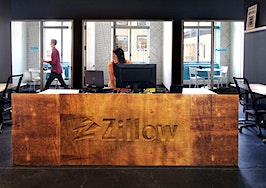- Maybe alternative-load products are just another MLS software license, but there are some unique legal and business considerations that need contemplation.
Competition in the alternative listing input arena is heating up. See here, here, here, here, here, here, and here. (Whew!)
For my purposes in this post, by “alternative listing input” or “alternative-load,” I’m generically describing adding listings to the MLS database by a means other than the MLS system’s listing add/edit functionality. For example, adding listings to the MLS database via Upstream or Bridge Compose.
Companies are working to show how their alternative-load products provide broker-sought control, functionality, and data collection and aggregation; to show how they fit (or don’t) within the current data management ecosystem; and to differentiate their products from competitors.
Maybe alternative-load products are just another MLS software license, but as of writing this post, I think there are some unique legal and business considerations that need contemplation.
After all, the MLS has historically been the primary touch point for brokers and agents. And importantly, it’s been a place where MLSs implement agreements that are critical to the risk allocation, intellectual property strategy, and basic function of the MLS.
Here are a few thoughts and questions about the legal implications stemming from changing the traditional flow of listing input, companies (legally) inserting themselves between the participant and MLS, or both.
Non-disclosure terms. Does the MLS have concerns about allowing a vendor under the hood of its system and rules structure? Does the MLS consider its business rules valuable, competitive information?
While it’s unclear whether the business rules are subject to copyright or patent protections, an MLS may protect those business rules through contractual means, such as non-disclosure terms.
Biz rules license scope. Stemming from the above point, an MLS should consider how a vendor may use the business rules that underlie the MLS system.
How may a vendor use the information it gains from examination of the MLS’s system? For a specific product? With specific functionality? What about for other future uses? What about to provide products that erode the MLS value proposition? In what circumstances may the MLS revoke use of the licensed information?
Vendor provided product. Does any agreement clearly identify what the MLS will get in return for providing what it might consider valuable information about the workings of its system? This is a pretty generic question, but I think it’s one of the major downfalls of many different types of vendor agreements in our industry.
In other words, what is the basic bargain? Does the agreement clearly articulate the vendor’s product’s functionality? Who can use the product and under what terms? Does it note all those bells and whistles shown at demos and included in product literature? Is there prohibited functionality (particularly use of MLS-developed business information to erode the MLS value or compete with the MLS)?
Compliance with rules. Has the MLS considered terms regarding the vendor’s and product’s adherence to MLS rules? What about future MLS rules?
This may seem obvious because it is essential functionality to an alternative-load product, but it’s important. What if the MLS wants to change its systems? Is it locked into legacy technology? On the other hand, has the MLS committed to using vaporware?
And to be fair on the last point, I think the industry benefits when an MLS provides a reasonable development license to promote progress, but the MLS might not want to overcommit on the back-end to the unknown.
Listing data license to vendor. Again, this is another perennial issue with vendor agreements. The MLS should not care what the product or business model is (except inasmuch as it competes with the MLS’s own business), but it should care what the data use is. After all, the data use is what matters to the MLS rules and participant and subscriber agreements (more on those agreements below).
If the use is not for the defined purpose of MLS, then the MLS likely should give brokers an option whether their listings are incorporated into the product. (See NAR Policy Statement 7.85).) So, is the MLS licensing listing content to the vendor? Does the MLS clearly understand when it can provide what content to third parties? Is the vendor incorporating listing data into a product that falls within the defined purpose of MLS?
Contractors. Does the vendor want to use subcontractors? Does the MLS permit it? If so, is the vendor responsible for its contractors? What obligations do the contractors have and to whom? Who are they? Does the MLS care?
Participant and subscriber agreements, risk, and copyright. The MLS should have agreements with its participants and subscribers that govern the relationship between the parties, and include basic risk allocation and copyright assignment or license terms. Those agreements are likely (at least partially) implemented through a “click-through” agreement upon logging onto the MLS system. If the alternative-load system bypasses those agreements, how will the MLS implement them with participants and subscribers? Will the new system allow the MLS to load its agreements?
Also, if the vendor has its own click-through agreement, will the vendor honor the participant and subscriber agreements? Will it commit to the MLS that it will either modify its click-through to do so or agree that it will not enforce any terms that contradict the participant and subscriber agreements?
Finally, what about those MLSs with more sophisticated copyright management systems that gather copyright ownership information within the system’s add/edit module? Is the vendor going to help the MLS continue gathering that information?
Unknown risks. Are there new types of risk to the MLS, its systems, brokers, and agents not contemplated by the current flow of listings? For example, is it possible for the vendor to introduce types of security breaches with its new access to the MLS system? Or given that the vendor is now the first point of contact with the input of the listing, will the vendor provide the assurances it so often seeks from MLSs that the content it is providing to the MLS is non-infringing? Again, what measures does the MLS have to disable access to the vendor?
Typical contract considerations. And of course, there is the litany of other typical considerations for vendor agreements (e.g., representations, warranties, limitations on liability, indemnifications, governing law, venue). See the CMLS best practices for further information.
These are uncharted waters, so I’m sure there are other questions that will bubble up, but the above questions provide a high-level overview of what we’ve been considering on behalf of our clients. So, what’s the burning (multilayer) question in my mind?
What happens to the MLS’s participant and subscriber agreements, i.e., the legal relationship between the MLS and its customers, the risk management and copyright hygiene work that occurs in them, and how does the vendor’s click-through agreement, if any, interlock with them?
Mitchell A. Skinner is an attorney and managing member at Larson Skinner based in Minneapolis, Minnesota.











